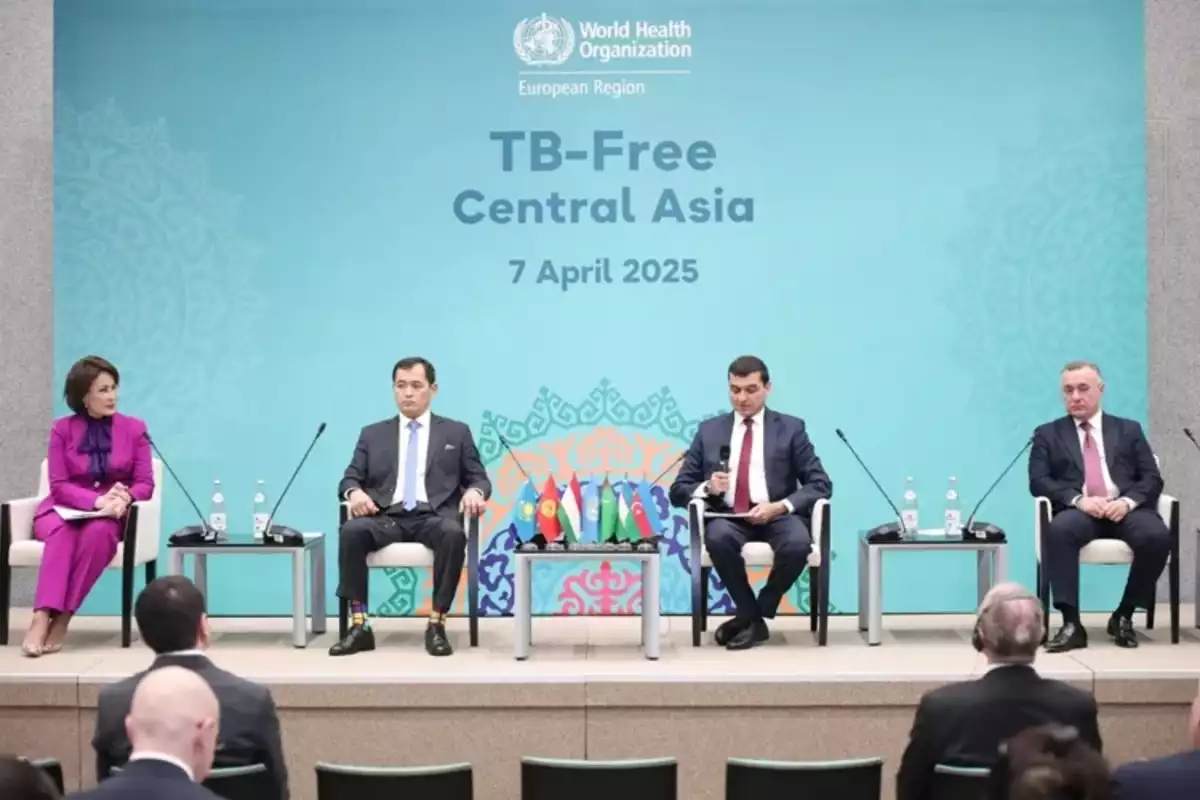
Photo: Kazakh Health Ministry
The Kazakh capital of Astana witnessed the signing of a significant declaration on Monday, marking the launch of the Tuberculosis (TB)-Free Central Asia Initiative (CAI).
The declaration led by the WHO Regional Office for Europe in partnership with the five Central Asian nations - Kazakhstan, Kyrgyzstan, Tajikistan, Turkmenistan and Uzbekistan, calls for accelerated tuberculosis elimination, including drug-resistant TB, across the subregion by 2030, The Caspian Post reports, citing Kazakh media.
“We stand at a pivotal moment in ending TB in Central Asia, where we must build on our gains and take up truly amazing advances in medicine to propel us towards the finish line. This landmark subregional initiative will serve as a model for other countries both in the WHO European Region and beyond that are facing a significant or growing TB burden, providing opportunities for cross-border collaboration at a time when it’s needed more than ever,” said Dr. Hans Henri P. Kluge, WHO Regional Director for Europe.
Dr. Hans Kluge said that TB rates are on decline in all countries of Central Asia, urging to implement innovative approaches relying on WHO recommendations.
"New anti-TB drugs, recommended by the WHO for all countries, including Central Asia, are being development and will be available in all the five nations," said Dr. Askar Yedilbayev, WHO/Europe Regional Advisor for TB/DR-TB, adding that these new anti-TB drugs are included in national protocols of the Central Asian countries.
According to Kazakh Health Minister Akmaral Alnazarova, over 35,000 TB and around 8,000 DR-TB cases are recorded annually in Central Asia.
Alnazarova noted that the initiative addresses real challenges, including health, social, economic and migration ones, promotes regional unity as a single community as well as is sustainability-oriented.
Four of the five Central Asian countries are among the top 30 high-burden DR-TB nations worldwide. Three CA nations have DR-TB rates exceeding 50% among previously treated patients and range from 26% to 34% among new patients, contributing to a quarter of the global DR-TB burden.
According to WHO/Europe, the TB-Free Central Asia Initiative (CAI) will entail:
Share on social media